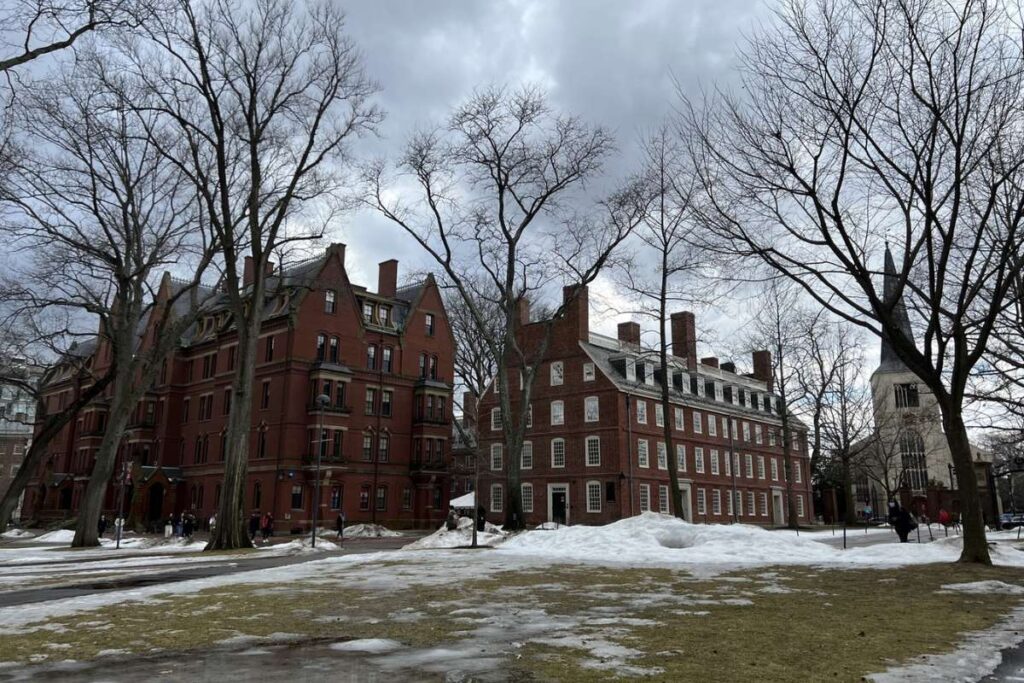Harvard Winter Housing Crisis : Student Advocacy Sparks Policy Reversal
In a rare moment of camaraderie amid a tense semester, the Undergraduate Brazilian Association at Harvard winter housing crisis recently convened over a barbecue in a dorm basement. The gathering offered a brief reprieve from ongoing frustrations stemming from the university’s controversial decision to deny hundreds of international students winter housing. Harvard reversed its decision after a significant public outcry and a student-led petition garnering over 300 signatures.
“Honestly, I feel like that should’ve been their decision in the first place,” said João Frazão, a junior from Rio de Janeiro. The initial denial created chaos for students like Frazão, who rely on on-campus jobs to secure housing. Many scrambled for expensive alternatives, such as last-minute flights home. Despite the reversal, Frazão and others faced online hostility, receiving xenophobic comments accusing them of being “illegals” or urging them to “sleep in a parking lot.” Harvard later apologized, attributing the housing decision to a misunderstanding, but students argue the incident reflects deeper issues of miscommunication and neglect.
A university spokesperson emphasized that international students receiving financial aid are eligible for travel stipends. However, students like Frazão and sophomore Ian Toyota from Kenya highlighted how bureaucratic hurdles complicate access to support. Toyota, unable to afford a sudden flight home, described the housing denial as a stressor on an already difficult semester.
Political Uncertainty Deepens Worries
The Harvard winter housing Crisis debacle unfolds against a broader backdrop of heightened anxiety for international students, as Donald Trump prepares for his second presidential term. During his first tenure, policies such as travel bans, stricter visa scrutiny, and a proposed rule mandating in-person classes during the pandemic led to a 12% drop in international student enrollment. His current campaign has reignited fears, with promises to immediately deport students perceived as anti-American or extremist.
In response, universities like USC, Cornell, and MIT are advising international students to return to the U.S. before Trump’s inauguration on January 20 to avoid potential disruptions. Harvard administrators echoed this caution in a recent email, urging students to budget extra travel time ahead of the semester.
Despite political rhetoric, international students remain integral to U.S. higher education. The Institute of International Education reported a record 1.1 million enrollments last year, contributing intellectual and cultural diversity to campuses. Ted Mitchell, president of the American Council on Education, emphasized their value, describing them as a “brain sweep” that enriches both academia and the economy.
Bridging the Disconnect
While administrators advise calm, students’ anxieties persist, underscoring what experts describe as a disconnect. Associate Professor Gerardo Blanco, director of Boston College’s Center for International Higher Education, noted that institutions must better address international students’ concerns, especially as these fears proliferate on social media platforms.
For students like Toyota, the winter housing mix-up exemplifies this gap. Toyota called for streamlined communication and simplified processes to alleviate stress. “It’s very hard to reach the housing office,” he shared, reflecting on days spent worrying about his appeal. As he pedaled back to work through the Cambridge cold, Toyota’s story served as a reminder that institutions must do more to support their international communities during turbulent times.

